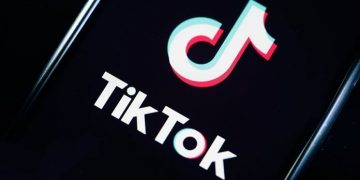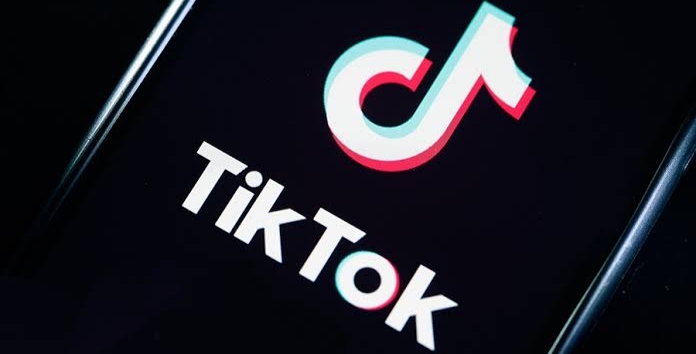The US Supreme Court has declined to block a law requiring TikTok’s Chinese parent company, ByteDance, to either sell the app’s US operations or face a nationwide ban. The move, set to take effect on Sunday, marks a major setback for a platform widely used by millions of Americans.
In a unanimous decision on Friday, the court ruled that the legislation—enacted with bipartisan support and signed by President Joe Biden last year—did not infringe upon First Amendment protections. The ruling affirms a lower court’s judgment against challenges brought by TikTok, ByteDance, and some of the app’s users.
“There is no doubt that, for more than 170 million Americans, TikTok offers a distinctive and expansive outlet for expression, means of engagement, and source of community. But Congress has determined that divestiture is necessary to address its well-supported national security concerns regarding TikTok’s data collection practices and relationship with a foreign adversary,” the court said in its opinion.
The justices further noted, “we conclude that the challenged provisions do not violate petitioners’ First Amendment rights.”
The case, which pitted national security concerns against free speech rights, was resolved swiftly. Oral arguments were held just nine days earlier, on 10 January.
A White House statement suggested that Biden does not intend to extend TikTok’s Sunday deadline. Press Secretary Karine Jean-Pierre reaffirmed Biden’s view that TikTok should remain accessible to Americans but under ownership that alleviates Congress’s security concerns.
Jean-Pierre clarified that implementing the law’s provisions now falls to the incoming administration, given the timing.
President-elect Donald Trump, who takes office on Monday, commented that TikTok’s future rests in his hands. Speaking to CNN, he said, “It ultimately goes up to me, so you’re going to see what I’m going to do. Congress has given me the decision, so I’ll be making the decision.”
The app, which boasts about 170 million US users, has become a cultural phenomenon, especially among young Americans. Its advanced algorithm, which curates highly personalised video content, is central to its popularity.
The dispute over TikTok reflects escalating tensions between the US and China, with lawmakers expressing concerns over data privacy and potential influence by a foreign government. The issue has gained prominence as Biden’s presidency winds down, leaving decisions about TikTok in Trump’s hands during heightened trade disputes between the two global superpowers.
During the Supreme Court arguments, Justice Department attorney Elizabeth Prelogar emphasised the security risks posed by TikTok’s Chinese ownership. She argued that ByteDance could be compelled to share data or comply with directives from Beijing, making TikTok a potential tool for espionage or disinformation campaigns against the US.
Prelogar warned that TikTok’s vast trove of user data could be weaponised, putting national security at significant risk.
The law, enacted in April, has been a point of contention since its passage. Although Biden’s administration defended the legislation in court, TikTok and its parent company sought relief, ultimately appealing to the Supreme Court after a December ruling in favour of the government.
Trump’s current opposition to the law marks a shift from his earlier efforts during his presidency to ban TikTok. He has since expressed support for the app, crediting it with boosting his appeal among younger voters during the 2024 election.
Last month, Trump requested the Supreme Court delay the law’s implementation to give his administration time to address the matter politically. Despite this, many Republicans continue to support the app’s removal over security concerns.
Mike Waltz, Trump’s incoming national security adviser, stated that the new administration would explore ways to ensure TikTok remains operational. He pointed to a legal provision allowing for a 90-day extension if ByteDance demonstrates significant progress towards selling its US operations.
Senate Democratic leader Chuck Schumer has advocated for extending TikTok’s deadline, arguing that additional time is needed to secure a suitable buyer while protecting national security.
TikTok CEO Shou Zi Chew is expected to attend Trump’s inauguration on Monday, joining other high-profile guests.
The company has warned that the legislation threatens not only its operations but also the free speech rights of its users. TikTok further highlighted the economic repercussions, including potential losses for advertisers, creators, and its 7,000 US employees.
Without an extension of the deadline, major tech companies like Google, Apple, and Oracle may face legal risks for continuing to provide services to TikTok. Noel Francisco, the attorney representing TikTok and ByteDance, described the platform as a critical space for expression in the US, arguing that the law unfairly targets speech under the guise of security concerns.
TikTok has announced plans to halt its US operations on Sunday unless a last-minute resolution is reached. Francisco contended that fears of foreign influence should not override constitutional protections, emphasising that such matters should ultimately be left to the American people, not the government.




































